“Encryption and key management can’t become endemic the way it needs to be without being easy and affordable. That’s a fundamental fact.” - Patrick Townsend, Founder & CEO of Townsend Security
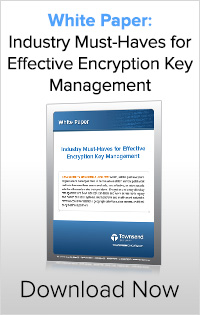
Every day securing sensitive data becomes more and more important. With sensitive information being entered into databases, and many databases moving to the cloud, the risks associated with unprotected data increase exponentially. Data such as credit card information, social security numbers, financial information, and protected health information (PHI) gets dumped into internal IT networks as well as the the stratosphere of the cloud. Without adequate data security tools, businesses are sitting ducks when it comes to data loss.
Unfortunately for a lot of organizations, the security tools their IT departments have deemed “adequate” are mostly firewalls and other access prevention mechanisms. Today, however, it is widely acknowledged by security professionals that these mechanisms are easily breached by hackers. In fact, many data breaches are simply caused by employees mishandling data. Because firewalls don’t keep data secure, industry regulators such as the Payment Card Industry Security Standards Council and HIPAA/HITECH Act mandate or strongly recommended organizations use strong encryption and encryption key management to secure the data itself. If encrypted data is compromised, but the encryption keys are securely protected, then the data remains unreadable.
Recently Joan Ross, security expert, published a White Paper outlining critical encryption key management principles that will help organizations overcome one of the biggest barriers to implementing a strong encryption key management solution: The need for a solution that is affordable and quick to deploy. 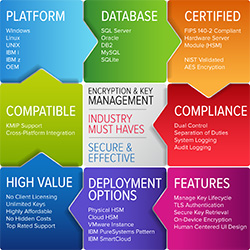 Time, money, compatibility, and hidden costs are issues every business struggles with. Almost every single successful, new innovative technology these days is designed to help individuals or businesses reduce time, save money, and increase compatibility between devices--unfortunately, the hidden costs sometimes persist. You see simplification driving down costs with tools such as virtualization and cloud computing, for example. These technologies are so effective at helping businesses reduce costs that more and more people are using them every day.
Time, money, compatibility, and hidden costs are issues every business struggles with. Almost every single successful, new innovative technology these days is designed to help individuals or businesses reduce time, save money, and increase compatibility between devices--unfortunately, the hidden costs sometimes persist. You see simplification driving down costs with tools such as virtualization and cloud computing, for example. These technologies are so effective at helping businesses reduce costs that more and more people are using them every day.
However, as businesses move more and more data into virtualized and cloud platforms, securing that data becomes even more difficult due to the inherent complexities of these environments. As this happens it’s important to remember that data security shouldn’t fall to the wayside.
With over 25 years in the data security industry, Ross addresses in her White Paper the issues of affordability and hidden costs in effective encryption key management systems. When choosing a key management vendor, Ross reiterates that hidden costs can quickly add up, resulting in a solution that that becomes too exorbitant to execute. Transparency, she urges, is critical to a successful relationship with a key management vendor. Achieving affordability and transparency is possible today because there are vendors today who want to work with customers--and who believe that cost should not be a barrier to good data security.
In Joan’s words: “Data security has come a long way within just the past few years. Organizations no longer have to continue to maintain current patchwork methods because there are no available, cost-effective, or interoperable solutions that easily solve their problems. Encryption and encryption key management are now industry standards and work across both legacy and newer business systems, multi-platform and multi-tenant networks, remote access workstations, geographical offices, data centers, and third-party business partners.”
Download the White Paper "Industry Must Haves for Effective Encryption Key Management" to learn more about must-haves in an encryption key manager and how to ensure your data is fully protected.


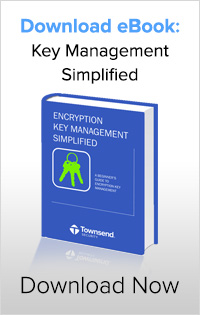

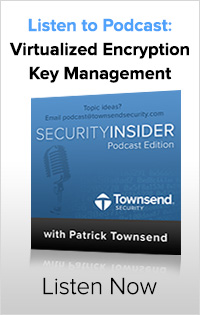

 By themselves, applications running VMware aren’t PCI compliant. Companies using VMware to reduce costs and consolidate their IT infrastructure still need to take responsibility for their own PCI compliance. Thankfully, VMware has made achieving PCI compliance through third-party security solutions easy with open architecture and standard APIs. VMware also recognizes the need for security in virtualized environments and has gone so far as to team up with CoalFire, a QSA auditing firm to publish guidelines for achieving PCI compliance in a virtual environment.
By themselves, applications running VMware aren’t PCI compliant. Companies using VMware to reduce costs and consolidate their IT infrastructure still need to take responsibility for their own PCI compliance. Thankfully, VMware has made achieving PCI compliance through third-party security solutions easy with open architecture and standard APIs. VMware also recognizes the need for security in virtualized environments and has gone so far as to team up with CoalFire, a QSA auditing firm to publish guidelines for achieving PCI compliance in a virtual environment.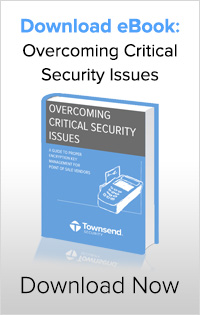
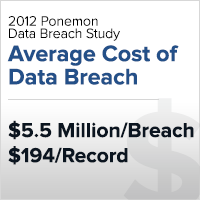 “Merchants are very worried about data breaches and the potential effect of a breach on their business. The average data breach costs a company $5.5 million, which includes the cost of fines as well as the costs associated with lost business, litigation, and brand damage. A successful exploit of poor data security can destroy years of work building brand reputation. Smaller businesses may never fully recover from a well-publicized data breach. Payment application vendors with poor encryption and key management are subjecting not only their customers to these risks, but themselves as well.”
“Merchants are very worried about data breaches and the potential effect of a breach on their business. The average data breach costs a company $5.5 million, which includes the cost of fines as well as the costs associated with lost business, litigation, and brand damage. A successful exploit of poor data security can destroy years of work building brand reputation. Smaller businesses may never fully recover from a well-publicized data breach. Payment application vendors with poor encryption and key management are subjecting not only their customers to these risks, but themselves as well.”
 Excellent Back End Support - When it comes to back end support, the people you deal with on a day-to-day basis can make or break a partnership. Townsend Security works closely with our partners to ensure their success. We provide our partners with training, marketing materials, OEM options, as well as easy and cost effective licensing models to get our powerful solutions protecting your customers as soon as possible.
Excellent Back End Support - When it comes to back end support, the people you deal with on a day-to-day basis can make or break a partnership. Townsend Security works closely with our partners to ensure their success. We provide our partners with training, marketing materials, OEM options, as well as easy and cost effective licensing models to get our powerful solutions protecting your customers as soon as possible.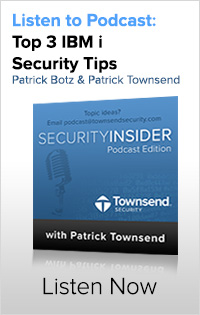
 2. Use Password Best Practices - Password management is often the downfall of many companies who suffer a data breach, especially a data breach that happens internally or by mistake. Patrick Botz specialized in password management and has enabled IBM i users to manage their passwords more securely with his Single SignOn (SSO) service, SSO Stat! Using a program called Kerberos, SSO works with both Windows and IBM i domains to streamline password use in a secured environment.
2. Use Password Best Practices - Password management is often the downfall of many companies who suffer a data breach, especially a data breach that happens internally or by mistake. Patrick Botz specialized in password management and has enabled IBM i users to manage their passwords more securely with his Single SignOn (SSO) service, SSO Stat! Using a program called Kerberos, SSO works with both Windows and IBM i domains to streamline password use in a secured environment.
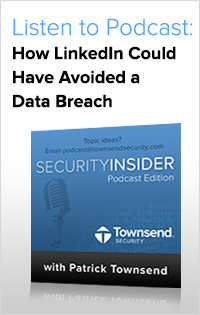

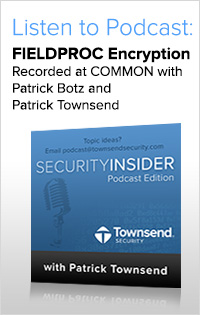
 Patrick Botz is an internationally known information security expert, specializing in security as a business requirement first, and as technology second. His passion for SSO began while working at IBM which he joined in 1989. He held several positions at IBM, including Lead Security Architect and founder of the IBM Lab Services security consulting practice. He architected the SSO solution for OS/400 and i5/OS, and he holds several security-oriented patents.
Patrick Botz is an internationally known information security expert, specializing in security as a business requirement first, and as technology second. His passion for SSO began while working at IBM which he joined in 1989. He held several positions at IBM, including Lead Security Architect and founder of the IBM Lab Services security consulting practice. He architected the SSO solution for OS/400 and i5/OS, and he holds several security-oriented patents.